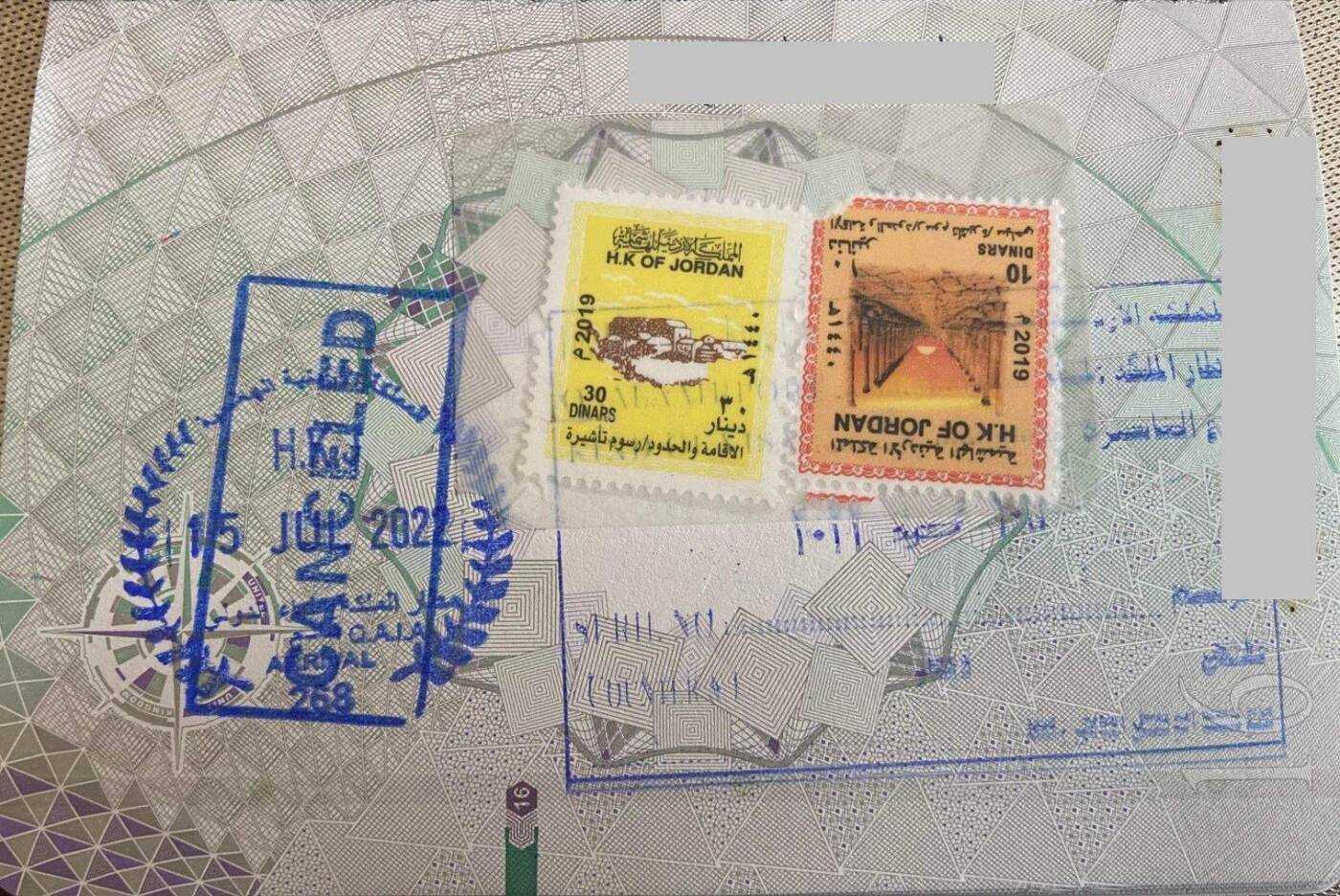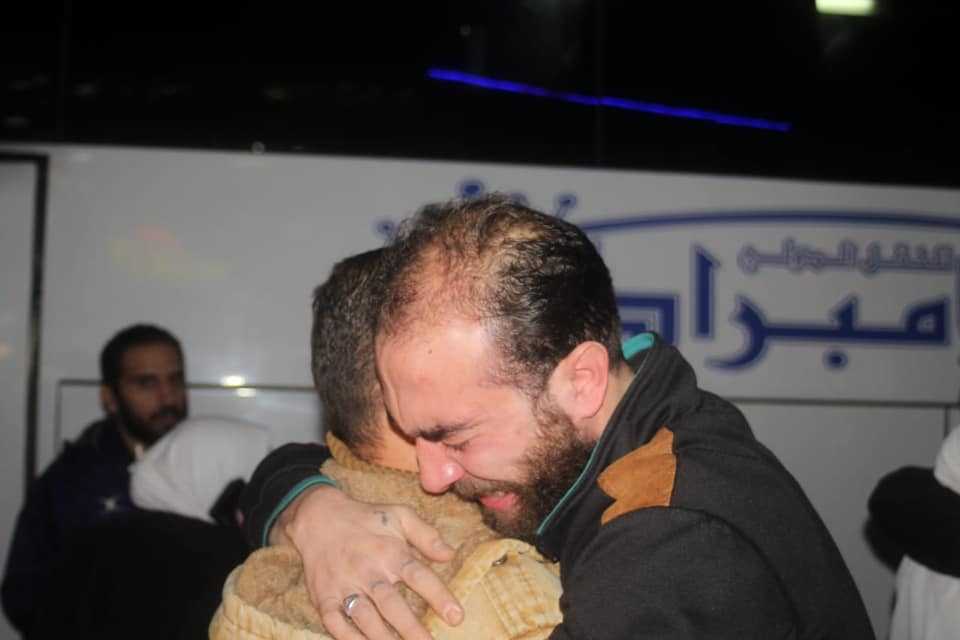Jordanian government eases entry for Syrians living in Europe: Who is included?
A recent decision by Jordan’s Ministry of Interior allows Syrians resettled in Europe to visit Jordan. The move cancels the five-year entry bans Jordan generally issues to Syrian refugees resettled by the UNHCR.
29 July 2022
AMMAN — Alaa Ghazlan, 35, was overjoyed to learn this month of Jordan’s decision to allow Syrians resettled in Europe to re-enter its territory. It gave him “hope to embrace my mother, and meet my brothers after years of separation.” Ghazlan, who is originally from Hama city, quickly booked plane tickets to spend his summer vacation with his family in Amman.
At the end of June, Jordan’s Ministry of Interior issued a decision to “cancel deportation orders against Syrian nationals who were in the Kingdom’s territory.” Syrian refugees who leave Jordan to be resettled by the United Nations Refugee Agency (UNHCR) are generally barred from reentering the country for five years after their departure.
Under the new decree, Syrian nationals who were refugees in Jordan and have been resettled in the European Union are allowed to re-enter the country. To benefit from the decision, they must hold valid residency permits in their EU country of residence for at least six months, as well as a valid return flight ticket and receive the necessary entry visas at the airport.
When Syrians started circulating the news of the decision in July, Ghazlan–who has lived in France since 2019, was with his wife and two children in the German city of Frankfurt, where he was spending his summer vacation with his wife’s family. After learning of the decree, Ghazlan cut his vacation short to fly to Jordan. He was scheduled to reach Amman on July 21, but at Frankfurt Airport a Royal Jordanian Airlines employee stopped him and his family from boarding the plane, he told Syria Direct.
He showed the worker a photo of the Interior Ministry’s decree and the required documents, “a valid residency for ten years, return tickets, and a travel document valid until 2027,” Ghazlan said. But the documents “did not convince the employee to let me board the plane, since I had not obtained a visa and security approval,” he said.
Before the latest decree was issued, Ghazlan twice tried to obtain security approval to visit his family in Jordan, but was denied. The latest decision was an opportunity to see his relatives living in Amman and reunite with his mother, who lives in Hama and took advantage of an earlier Jordanian measure easing entry procedures for Syrians coming to Jordan with tourist groups. The failure of his most recent travel plans was “shocking” and costly, as Ghazlan lost the value of the tickets, 1,200 euros ($1,221 dollars at the current exchange rate).
Who does the decision cover?
Jordan’s decision to cancel the five-year bans for some Syrians comes in the context of “measures taken by the Ministry of Interior to facilitate the entry of Arab and foreign nationals for visiting and tourism, in a way that benefits the national economy,” according to the decree. The measure does not include Syrians barred from entry for security reasons.
The move aims to “enable refugees who have been resettled in EU countries without their families to visit them in Jordan,” Jordanian Interior Minister Mazin Al Farrayeh told Syria Direct.
Syrian visitors coming from Europe are required to hold valid residency and a return ticket to “ensure their departure after the end of the visiting period, in order to avoid reverse waves of asylum” that Jordan cannot bear under the current economic conditions, Al Farrayeh said.
Syrians living in the EU welcomed Jordan’s decision, but were left confused about whether it has come into effect, and if they are included. This uncertainty has been heightened after some passengers, like Ghazlan, were prevented from boarding planes or turned back at the airport in Amman.
Adding to the murkiness of the decision, “the Jordanian Embassy in France denied knowledge of the decree, while answers from an employee on the Jordanian Ministry of Interior’s hotline were completely unclear,” Ghazlan said.
Ghazlan lived in Jordan for seven years before he was resettled in France through the UNHCR in 2019. He is one of 54,000 Syrian refugees formally resettled from Jordan by the UNHCR in 23 countries, including in the EU, according to figures Syria Direct obtained from a source at the UNHCR office in Jordan.
Minister Al Farrayeh explained that decisions issued by the Interior Ministry regarding the entry of Syrians to Jordan are circulated to the Ministry of Foreign Affairs and relevant embassies. A copy is also sent to the Ministry of Transportation—which is responsible for sending it to airline companies—and the Ministers of Tourism and Investment, in addition to relevant security authorities.
The latest decision is limited to “every Syrian who took refuge in Jordan before being resettled in an EU country, exclusively through the UNHCR,” Al Farrayeh said. It does not include “those who left the kingdom voluntarily or were resettled without UNHCR’s intervention.”
The Minister said this is because of the “lack of clarity, for the Jordanian authorities, of their security records, behavior, and itinerary before arriving in European countries” without the UNHCR.
However, the Ministry of Interior has facilitated the entry of some Syrians who arrived at the Queen Alia International Airport who did not meet the decision’s conditions. “They received verbal approval after coordinating with the relevant authorities to obtain permission for entry,” Al Farrayeh said.
Jordan had banned Syrians from entering the country except by submitting a request via a Ministry of Interior platform “explaining the purpose of the visit, if it is for tourism, [medical] treatment, or investment,” a source at the Ministry of Interior explained to Syria Direct.
Syrians living in Europe—whether directly covered by the recent decision or not—can apply for approval online and potentially avoid being stopped at airports or surprised by unknown security issues. But “the service has been temporarily suspended, and will be reactivated in early August,” the source said.
Could the decision be expanded?
While Ghazlan was denied boarding, Ahmad al-Saeed, 40, boarded a flight and reached Queen Alia Airport in Amman, but the Jordanian authorities then prevented him from entering the country. “An airport employee told me the [decision’s] conditions didn’t apply to me,” he said.

A picture of Ahmad al-Saeed’s British passport, showing his entry stamp was canceled after he already paid the visa fee imposed on foreigners at the Amman airport, 24/7/2022 (Syria Direct)
In 2012, al-Saeed fled his native Homs with his family and settled in Zaatari camp, in northern Jordan. He was resettled in the United Kingdom in 2015. After living there for three years, he received British citizenship.
Usually, a Syrian who has received another nationality is treated like any other citizen who holds that nationality. So al-Said believed it was possible to visit Jordan, regardless of the latest decision, especially since he was past the five-year deportation period imposed on Syrians resettled through the UNHCR.
But while Syrians are circulating news that refugees resettled in Europe can automatically visit Jordan after five years abroad, Minister Al Farrayeh said “the deportation order is not automatically canceled.”
The Ministry of Interior is also considering expanding the decision to ease entry requirements for Syrian refugees residing in “countries outside the umbrella of the EU,” he added.
For years, Jordan has sought to strike a balance on the Syrian refugee issue that is “in line with international laws related to refugees, and at the same time consistent with humanitarian requirements, which make it necessary to facilitate refugees meeting with their families who reside in the kingdom” while taking “the security and economic aspects” into account,” he said.
In the end, Ghazlan may have fallen victim to the airline employee’s lack of knowledge regarding the decision. Regardless, it was a disappointment, “after I felt that my dream of meeting my mother after 10 years had evaporated.”
This report was originally published in Arabic and translated into English by Mateo Nelson.







